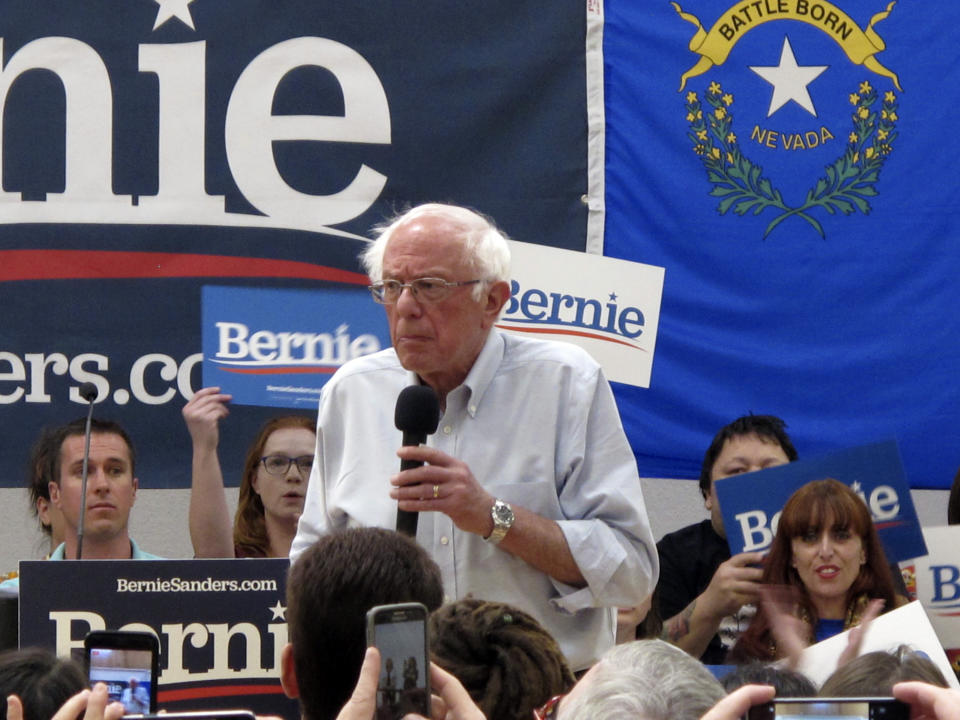How Medicare for all is tripping up Democrats
Shortly after announcing her presidential campaign in January, Sen. Kamala Harris said she’d get rid of private insurance as part of her plan to enact a “Medicare for all” single-payer health care system. That didn’t go over so well with the 177 million Americans who have private coverage and would lose it. So Harris backtracked from that and promoted a Medicare for all plan that would include private insurers. Confusion ensued.
Harris dropped her presidential bid on Dec. 3, as she sank in the polls and funding dried up. Her shifts on health care didn’t single-handedly sink her campaign. But it mystified voters and typified the difficulty Democratic candidates are having pushing for health care reforms that are both transformative and doable.
With Harris gone, the main Democratic candidates who support Medicare for all are Bernie Sanders—who wrote the damn bill—and Elizabeth Warren. Sanders’ socialist preferences are well known, and his support among Democrats has consistently run around 20% for most of the current campaign. Warren is newer to voters, and she’s been developing fresh policy proposals for the last several months. And like Harris, Warren has vacillated on health care as voters seem to disapprove.
Warren hit a high point in October, when a Quinnipiac poll showed her in first place nationally, with 28% of Democratic voters saying Warren was their first choice for president. Joe Biden was second, with 21%.
At the same time, however, Biden and many others were pressing Warren to explain how she’d pay for Medicare for all, which would probably require a doubling of federal outlays each year and sharp tax hikes to finance it. Sanders has suggested he’d pay for the giant plan with a 4% income-tax surcharge on families making more than $29,000. Families would still end up better off, he says, since they’d pay nothing for health care.
Warren won’t commit to a middle-class tax hike because she knows her opponents would pound her for it if she did. So in early November she released a plan to finance Medicare for all with a wealth tax on millionaires, new business taxes, reduced military spending and better efficiencies. The middle class would get something—free health care—for nothing, as long as her lowball cost estimate for Medicare for all and highball revenue estimate for new taxes panned out.

In case they don’t, Warren now has a backup plan. In mid-November, Warren released a “transition” plan that would come before Medicare for all. This would be a new public health plan for people who need it that leaves private insurance in place. It’s very much like the “public option” plans Pete Buttigieg and Joe Biden support. Both of those campaigns trashed Warren for flip-flopping and trying to kill private insurance in the first place.
‘A vote loser’
Look what happened next: Warren tanked in the polls, falling to 14% in November in the same Quinnipiac poll that showed her to be the front-runner in October. Part of that drop might have been the surprising rise of 37-year-old Pete Buttigieg. But part of it is also probably voters souring on Medicare for all as they learn of the new taxes it would require and the likely disruption it would cause.
Support for Medicare for all among all voters has fallen from 51% in 2017 to 36% now, according to Quinnipiac. A survey of swing-state voters by the Kaiser Family Foundation and Cook Political Report found that 62% say Medicare for all is a bad idea, while just 36% say it’s a good idea. Alan Abramowitz of the University of Virginia’s Center for Politics studied voting patterns in the 2018 midterms and determined that Medicare for all is a “vote loser.”
What’s much clearer now than when Kamala Harris first said she’d get rid of private insurance is that Medicare for all appeals to many Democrats but drives away many swing voters who will be essential to winning the presidency in 2020. Warren, like Harris before her, is trying to appeal to both groups. But that comes with a tradeoff: some voters in both groups turn on a candidate who will seemingly say anything to get elected instead of standing up for a gut belief.
Bernie Sanders is the guy who sticks to his principles. But he tried this once, in 2016, and his views are probably still too extreme to win the Democratic nomination. And some Democratic voters who might like Sanders don’t think he can beat Trump, so they’ll end up casting ballots for somebody else. Cornering the fringe vote is no way to win.
Rick Newman is the author of four books, including “Rebounders: How Winners Pivot from Setback to Success.” Follow him on Twitter: @rickjnewman. Confidential tip line: [email protected]. Encrypted communication available. Click here to get Rick’s stories by email.
Read more:
Read the latest financial and business news from Yahoo Finance
Follow Yahoo Finance on Twitter, Facebook, Instagram, Flipboard, SmartNews, LinkedIn, YouTube, and reddit.
